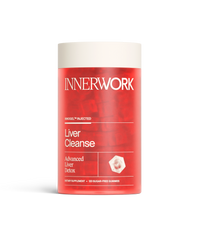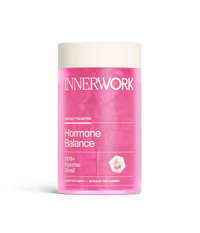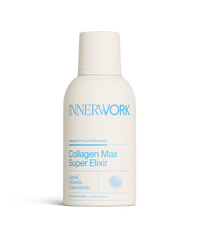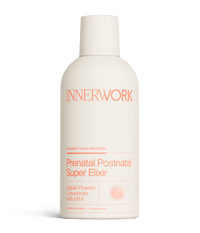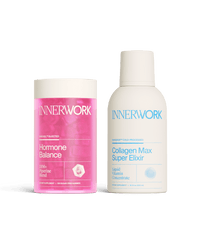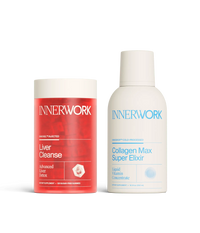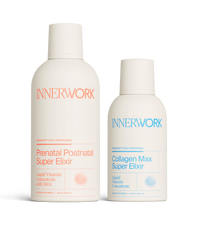Bioavailability, the degree and rate at which a substance is absorbed into the bloodstream, is a crucial factor in supplement effectiveness. Liquid collagen typically demonstrates higher bioavailability than solid forms. This advantage stems from its liquid state, which allows collagen peptides to be absorbed more rapidly and effectively by the digestive system.
Research indicates that liquid supplements can bypass some of the digestive breakdown that solid forms undergo. Pills and powders require additional time and digestive effort to dissolve before nutrient absorption can occur, potentially reducing the efficiency of collagen uptake. In contrast, liquid collagen is already in a partially broken-down state, facilitating faster absorption and utilization by the body.
Most liquid collagen supplements undergo hydrolysis, a process that breaks collagen down into smaller, more easily absorbed peptides. These hydrolyzed collagen peptides are designed to improve absorption in the gastrointestinal tract. The smaller peptides are more readily absorbed into the bloodstream, where they can support tissue repair, skin elasticity, and joint health.
The rapid absorption of liquid collagen leads to a faster onset of its effects. The body can begin utilizing the nutrients almost immediately, sometimes within 15 minutes. This quick absorption can be particularly beneficial for individuals dealing with conditions like osteoarthritis, where timely support is crucial. Additionally, the quicker absorption helps maintain more consistent collagen levels throughout the day, potentially enhancing the overall effectiveness of the supplement.
Liquid collagen supplements can be gentler on the digestive system, especially for individuals with gut sensitivities or digestive disorders. High-quality liquid collagens often lack additives, fillers, or artificial sweeteners that may be present in some collagen powders. For example, Innerwork's Collagen Max Super Elixir is formulated without sugars and artificial sweeteners, making it suitable for those with gut health concerns.
Interestingly, the body's ability to absorb and utilize nutrients varies throughout the day due to circadian rhythms. Some research suggests that protein absorption might be more efficient in the morning. The rapid absorption of liquid collagen could potentially be timed to align with these circadian peaks, optimizing its efficacy.
Proper hydration is essential for nutrient absorption and transport. Liquid collagen supplements contribute to overall hydration, potentially enhancing the body's ability to transport and utilize the collagen peptides. This dual action of providing both collagen and hydration could be particularly beneficial for skin health.
Liquid collagen formulations often include additional ingredients that enhance their effectiveness. Nutrients like Vitamin C, essential for collagen synthesis, and hyaluronic acid, which supports skin hydration and joint lubrication, are commonly found in liquid formulations. This combination optimizes collagen absorption and provides a broader spectrum of benefits.
While all collagen supplements aim to support the body's natural collagen production, liquid formulations stand out due to their superior absorption, rapid delivery, and gut-friendly nature. However, individual responses may vary, and more research is needed to definitively establish the superiority of liquid formats. As with any supplement regimen, consulting with a healthcare professional is advisable to determine the most appropriate approach for individual needs.
As research in this field continues to evolve, liquid collagen supplementation presents a promising avenue for those seeking to maximize the benefits of collagen intake.
References:
[1] León-López, A., et al. (2019). Hydrolyzed Collagen—Sources and Applications. Molecules, 24(22), 4031.
[2] Adibi, S. A. (1997). The oligopeptide transporter (Pept-1) in human intestine: biology and function. Gastroenterology, 113(1), 332-340.
[3] Jäger, R., et al. (2019). Comparison of the Pharmacokinetics of Different Forms of Methylsulfonylmethane (MSM). Nutrients, 11(5), 1086.
[4] Muthu, S., et al. (2021). Structural and functional impacts of pH on collagen. Scientific Reports, 11(1), 1-13.
[5] Pullar, J. M., et al. (2017). The Roles of Vitamin C in Skin Health. Nutrients, 9(8), 866.
[6] Proksch, E., et al. (2014). Oral Supplementation of Specific Collagen Peptides Has Beneficial Effects on Human Skin Physiology: A Double-Blind, Placebo-Controlled Study. Skin Pharmacology and Physiology, 27(1), 47-55.
[7] Jäger, R., et al. (2017). International Society of Sports Nutrition Position Stand: Protein and exercise. Journal of the International Society of Sports Nutrition, 14, 20.
[8] Popkin, B. M., et al. (2010). Water, hydration, and health. Nutrition Reviews, 68(8), 439-458.
[9] Skov, K., et al. (2019). Enzymatic Hydrolysis of a Collagen Hydrolysate Enhances Postprandial Absorption Rate—A Randomized Controlled Trial. Nutrients, 11(5), 1064.

